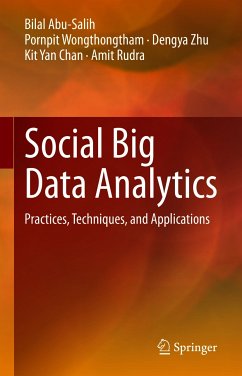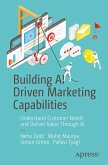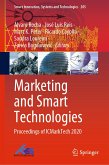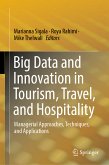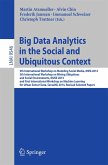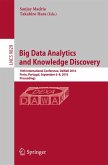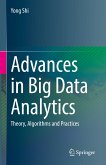This book focuses on data and how modern business firms use social data, specifically Online Social Networks (OSNs) incorporated as part of the infrastructure for a number of emerging applications such as personalized recommendation systems, opinion analysis, expertise retrieval, and computational advertising. This book identifies how in such applications, social data offers a plethora of benefits to enhance the decision making process.
This book highlights that business intelligence applications are more focused on structured data; however, in order to understand and analyse the social big data, there is a need to aggregate data from various sources and to present it in a plausible format. Big Social Data (BSD) exhibit all the typical properties of big data: wide physical distribution, diversity of formats, non-standard data models, independently-managed and heterogeneous semantics but even further valuable with marketing opportunities.
The book provides a review of the current state-of-the-art approaches for big social data analytics as well as to present dissimilar methods to infer value from social data. The book further examines several areas of research that benefits from the propagation of the social data. In particular, the book presents various technical approaches that produce data analytics capable of handling big data features and effective in filtering out unsolicited data and inferring a value. These approaches comprise advanced technical solutions able to capture huge amounts of generated data, scrutinise the collected data to eliminate unwanted data, measure the quality of the inferred data, and transform the amended data for further data analysis. Furthermore, the book presents solutions to derive knowledge and sentiments from BSD and to provide social data classification and prediction. The approaches in this book also incorporate several technologies such as semantic discovery, sentiment analysis, affective computing and machine learning.
This book has additional special feature enriched with numerous illustrations such as tables, graphs and charts incorporating advanced visualisation tools in accessible an attractive display.
Dieser Download kann aus rechtlichen Gründen nur mit Rechnungsadresse in A, B, BG, CY, CZ, D, DK, EW, E, FIN, F, GR, HR, H, IRL, I, LT, L, LR, M, NL, PL, P, R, S, SLO, SK ausgeliefert werden.
Es gelten unsere Allgemeinen Geschäftsbedingungen: www.buecher.de/agb
Impressum
www.buecher.de ist ein Internetauftritt der buecher.de internetstores GmbH
Geschäftsführung: Monica Sawhney | Roland Kölbl | Günter Hilger
Sitz der Gesellschaft: Batheyer Straße 115 - 117, 58099 Hagen
Postanschrift: Bürgermeister-Wegele-Str. 12, 86167 Augsburg
Amtsgericht Hagen HRB 13257
Steuernummer: 321/5800/1497
USt-IdNr: DE450055826

